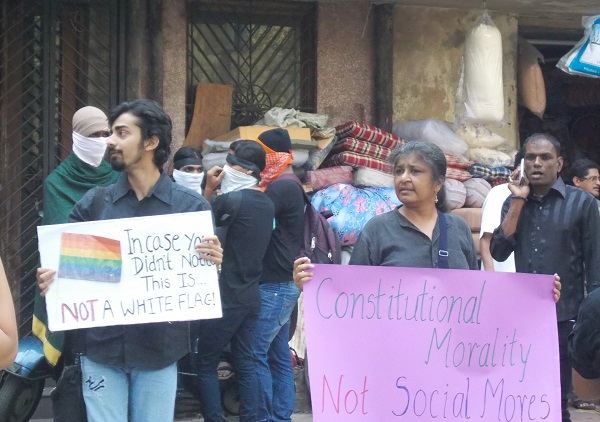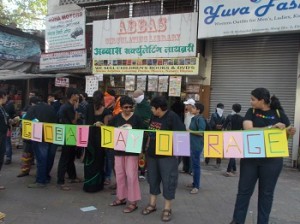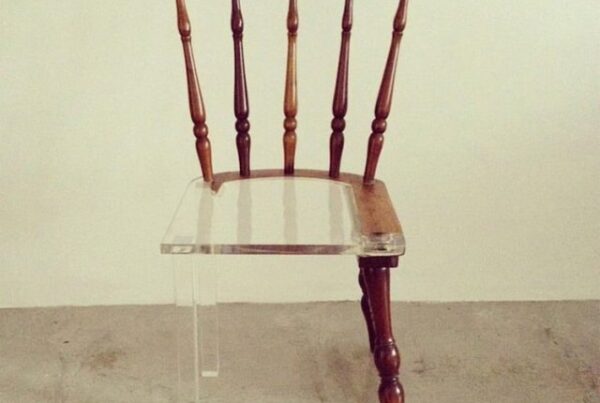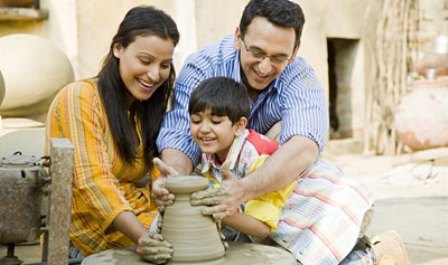Three gay activists tell us what the recent SC verdict criminalising gay sex really means for them and the community.
by Nidhi Qazi
The Supreme Court judgement on Wednesday, December 11, 2013 prohibiting “carnal intercourse against the order of nature” came as a shock to everyone. This came four years after the Delhi HC’s 2009 judgment that decriminalised homosexual intercourse as provided in section 377 of the Indian Penal Code (IPC), and ruled that such sex between two consenting adults in private would not be an offence.
In the wake of this, there has been an outcry in the media, academicians and the community of the LGBTI (lesbian, gay, bisexual, transgender, inter-sex). To closely understand the issue from the community’s perspective, The Metrognome spoke to Ankur Srivastava, researcher with The Humsafar Trust (HST); Priya, Co-editor of queer blog, The Gaysi Family and Ankit Bhuptani, Founder, Gay and Lesbian Vaishnav Association, Mumbai.
Q: What does the verdict mean to you?
Ankur: Well, I would like to answer this on two levels. The first is me, as a professional and a student who has been engaged on sexuality studies and aligned with the movement. In this space I feel that we all have been pushed many years back in the struggle; and the now need of the hour is to re-strategise and ensure all subgroups of the LGBTI community fight this together. I also feel disappointed with the judiciary, where I had my hopes and faith on. Secondly, at a personal level though I see my friends standing by in support; I also feel more conscious of the fact that how the continuous telecast of this news is impacting the ways in which my family who is aware of my sexuality is interpreting it. I do not feel scared or threatened by it rather my commitment towards working on the issue is strengthened.
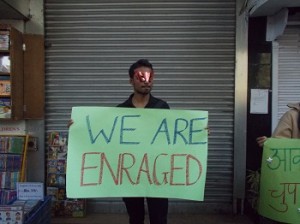 Priya: This verdict only means more work because there is no going back. When one has seen the blue blue sky, one cannot go back to the dark tower. SC made two points that impacted me the most. A) Only 200 cases of discrimination and harassment of LGBT people by the law have been recorded in the last 150 years. B) LGBT only forms a miniscule part of the population and hence, should just be ignored.
Priya: This verdict only means more work because there is no going back. When one has seen the blue blue sky, one cannot go back to the dark tower. SC made two points that impacted me the most. A) Only 200 cases of discrimination and harassment of LGBT people by the law have been recorded in the last 150 years. B) LGBT only forms a miniscule part of the population and hence, should just be ignored.
This verdict also means the law of this land – India, has no standing or bearing or representation of its people for it has chosen to ignore and subjugate one minority in the name of another.
Ankit: A ‘LOT’. It was a key for me to getting acceptance from each individual who believed in the Indian Constitution.
What are the implications of the verdict?
Ankur: The verdict has created more spaces of vulnerabilities for the LGBTI community. The journey for many which began with Delhi High Court judgment may find it astray now. Young people who in the spirit of confidence and pride came out at their workplace or other spaces few might start feeling more vulnerable. Similarly a lot of men who aren’t confident about their sexuality or are in closet would resist taking health services for fear of stigma or discrimination. This verdict will impede in the work towards HIV prevention, impact psychological health, and may also result in an increase in the cases of abuse, violence and harassment; or even misuse of this Section.
Priya: It has given a lot of impetus to people to raise their voices even louder. The protests across 20 plus cities in India is just a small sign of what the people are feeling on being denied their fundamental human rights.
On the negative side, it opens up the path for millions of queer Indians to be oppressed in the name of sexuality and does away with years of progress towards opening up spaces, mindsets and opinions.
Ankit: It will be very negative. It will be used by the Police against homosexuals in a very wrong way. It will bring depression on Indian youth, especially in small cities.
What is the next step for organisations like yours?
Ankur: I don’t think it is any more of an individual organisation’s response that matters or rather is of any consequence in relation to national response to the judgment.
At The Humsafar Trust, currently we run six targeted interventions for prevention of HIV with men who have sex with men and transgender persons in Mumbai, supported under Maharashtra District AIDS Control Society (MDACS). One of the key tasks is of distribution of condoms and lubricants to the population and talk for safer sex practices. Since the verdict, a few of our outreach workers have already reported cases of police harassment.
What really seems like a response to me, is what we intend to do by being part of Queer Azadi Mumbai (QAM) collective. The call for a meeting on December 15 to protest against the verdict was to discuss the next steps in the presence of the larger community. This meeting is the first step that converges into a national meeting with LGBTI persons in Delhi next week to finalise the plan of action. A collective national response and strategy is what we are looking forward to.
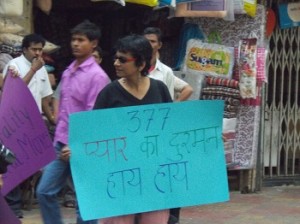 Priya: The idea is to gather, inform and campaign more and more and more until somebody responds! This verdict has brought people far closer than even the glorious High Court verdict in 2009! We plan to engage and encourage people for continuous on-the-ground public action.
Priya: The idea is to gather, inform and campaign more and more and more until somebody responds! This verdict has brought people far closer than even the glorious High Court verdict in 2009! We plan to engage and encourage people for continuous on-the-ground public action.
We are also at heart a media platform – we will continue to share voices, thoughts, opinions on the issue and also curate all possible news and information so we stay ahead of the way the Indian and global community has reacted and continues to react to this development.
Ankit: We are going to fight for our rights. And apart from our judicial fight we will also do more of social awareness programmes. It’s about time that the society understands that Gay rights are all about basic human rights.
Why do you think the 2009 HC decision was quashed?
Ankur: Well, I would refrain from answering this question. We all know the judgment by Delhi High Court in 2009 was a historic judgment not because it favoured LGBTI rights, but more because the judgement called upon ‘constitutional morality’ above everything, and an essence Indian constitution. It stated that Judiciary in a democracy has to ensure equal rights and justice to all the citizens of this country and in particular to safeguard the rights and interests of marginalised and vulnerable populations. Supreme Court’s verdict has weakened trust and hope of a lot of citizens like me, who always thought Judiciary as a key to realize rights and justice.
Priya: We seriously do not know. Common sense fails us here. The current judgment lacks clarity in the arguments on which the conclusions are based. It seems to have completely ignored the fundamental constitutional promise of equality and dignity to every citizen of the world’s largest democracy. It is just the extreme opposite of the HC judgment. There are multiple speculations – owing to the shaky and political nature of India’s decision-making but otherwise we have no reasons as to why this may have happened. Prior to the decision, we were highly optimistic.
Ankit: Because SC mostly speaks about the technicality of law, about how the court cannot do much about it and we need to approach the Parliament for the same. This judgment is without heart. I personally think that the SC should also consider human feelings as they are dealing with human rights.
Irrespective of the verdict, do you think that the society is prepared to respect the choices and decisions of the LGBT community?
Ankur: Though it saddens me to look at the verdict, I am happy to see the massive support that is coming from the general population. I like the fact that many straight friends, allies
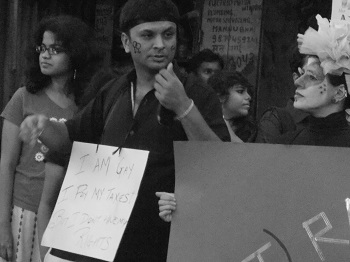 and supporters are coming in front to condemn the judgment. This is a result of the efforts that have been put in all these years to mainstream and create awareness on this issue.
and supporters are coming in front to condemn the judgment. This is a result of the efforts that have been put in all these years to mainstream and create awareness on this issue.
I thought that irrespective of social acceptance, I want my rights to be in place. I believed that my legal rights will help me fight more rigorously and more importantly to fight back any abuse, violence or harassment from homophobic persons or institution. But now, I sincerely hope that we consider this unfortunate event as an opportunity to talk and discuss more about the issue with people, and gain from their support. There will always be homophobes like there are racist, sexist people, but what I look forward to is a space where I have a right to protest and ask for a justice when I am being denied; and I am many more allies and supporters to outnumber the homophobes.
Priya: We think so. The last four odd years have seen many individuals stepping out and expressing their identity, gender and sexual diversity. Many public spaces have been created to promote a dialogue between the LGBT community and the mainstream. Enough literature has been produced that reflects the queerness in the lives of straight people and the stories of LGBT resonating well with the majority. We think the society is making an attempt to understand the LGBT community, and is supporting us through all this in spirit, in heart and in kindness.
Ankit: Well, I personally feel that society is ready to accept anything which you can make them understand. So, the question is not whether the society is prepared to respect the choices and decisions of the LGBT community. But is the LGBT community ready to make people understand why they need to accept and respect themselves? And the answer is, the LGBT community has somewhere failed to prove it. The reasons for this can be many. But indeed there is a lack of effort from community work for their social acceptance.
Has the media played a supportive role in advancing the rights of the community or has the gesture been purely symbolic?
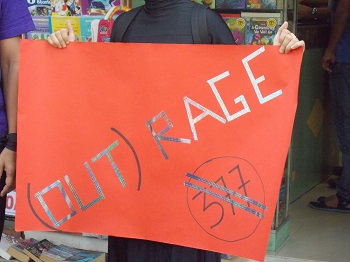 Ankur: I think it has been really supportive, in fact better than ever before. Look at any of the news channels and you would see journalists stating their clear position on the judgment and also advocating the rights of the LGBTI community. I also would like to believe that these people who have a large viewership in the country would impact and also create a positive change in the viewer’s perspective. Similarly for two days in a row, many of print media (English and vernacular) have covered extensively the news on the judgment and have dealt with the subject with sensitivity and in solidarity.
Ankur: I think it has been really supportive, in fact better than ever before. Look at any of the news channels and you would see journalists stating their clear position on the judgment and also advocating the rights of the LGBTI community. I also would like to believe that these people who have a large viewership in the country would impact and also create a positive change in the viewer’s perspective. Similarly for two days in a row, many of print media (English and vernacular) have covered extensively the news on the judgment and have dealt with the subject with sensitivity and in solidarity.
Priya: The media has been really supportive in advancing the rights of the community. Every newspaper, magazine, online platforms and television have done their part in promoting, sharing, and informing the mainstream about LGBT and other minorities. The onus of causing a shift in the social acceptance, mobilisation and sensitisation also lie heavily with the media. It is through them that people have heard of the lesbian couple who committed suicide in Nandigram, Bengal or the famous wedding of another lesbian couple in San Fransciso.
We like the fact that the media creates a lot of noise, picks up on nuances, details, small issues and plays to social causes these days. We’ve seen it for other issues in the country before and now there is no better time to play to the cause of the Gay rights issue.
Ankit: Yes, the media has been very supportive about this. I observed very effective support of media in last few days, English as well as regional. Lastly, I would just like to say that it’s not an end, we have very long way to go and we are going to walk ahead and make this country and world a better place to live.
(Pictures courtesy Nidhi Qazi. All images captured on Sunday, December 15, during the Global Day of Rage)

